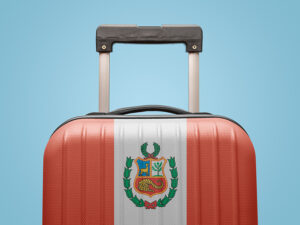Category: Legislation

Peru boosts tourism investment with a new general law that introduces strategic tax advantages for ZEDT and activities outside them
The new General Tourism Law of Peru approved various tax incentives for the tourism sector with the aim of promoting and regulating the sustainable and competitive development of tourism activity. Among them, the most notable are the significant reduction of the Income Tax to 0%, 10% or 15% and additional benefits related to depreciation, deductions […]

The reform of the National Water Law redefines the use of water and raises the requirements for the tourism and hotel sector in Mexico
The recent reform of the National Water Law introduces a decisive shift in the management of water resources in Mexico, by prioritizing human consumption, reinforcing state control and tightening the regime of concessions and sanctions. This new regulatory framework has immediate and relevant implications for hotels, resorts and tourism developments, which will have to adapt […]

The Supreme Court updates its approach to the duration of certain timeshare agreements
The Supreme court has updated its approach to timeshare agreements following the amendment introduced by Organic Law 1/2025 of January 2, 2025 on efficiency measures in the public justice system. It now allows such agreements to be for longer than an indefinite-term, or than the statutory 50-year period, when they are linked to preexisting rules. […]

Canary Islands region redefines vacation rentals with new law to balance tourism and residential needs
The recently approved Law on Sustainable Tourist Use of Housing introduces limits, requirements and a complex set of transitional rules to make vacation rentals compatible with access to housing and urban coexistence in the Canary Islands. The regulation of vacation rentals or tourist use housing has become one of the most talked-about topics in the […]

Towards a comprehensive VAT reform in the EU travel and tourism sector
Since the end of July, the European Commission has been carrying out a review process of the VAT rules applicable to the travel and tourism sectors. The expected horizon for adoption is the fourth quarter of 2026. The context for the European Commission’s initiative is the need to adapt rules that have become obsolete for […]

The new European directive on waste reinforces the obligations to prevent food waste in hotels and restaurants
The obligations in terms of food waste management are expanded, which will require a review of the internal procedures for handling, distribution and consumption of food in hotels, restaurants and catering. On September 26th, Directive (EU) 2025/1892 of the European Parliament and of the Council of September 10th amending Directive 2008/98/EC on waste was published […]
